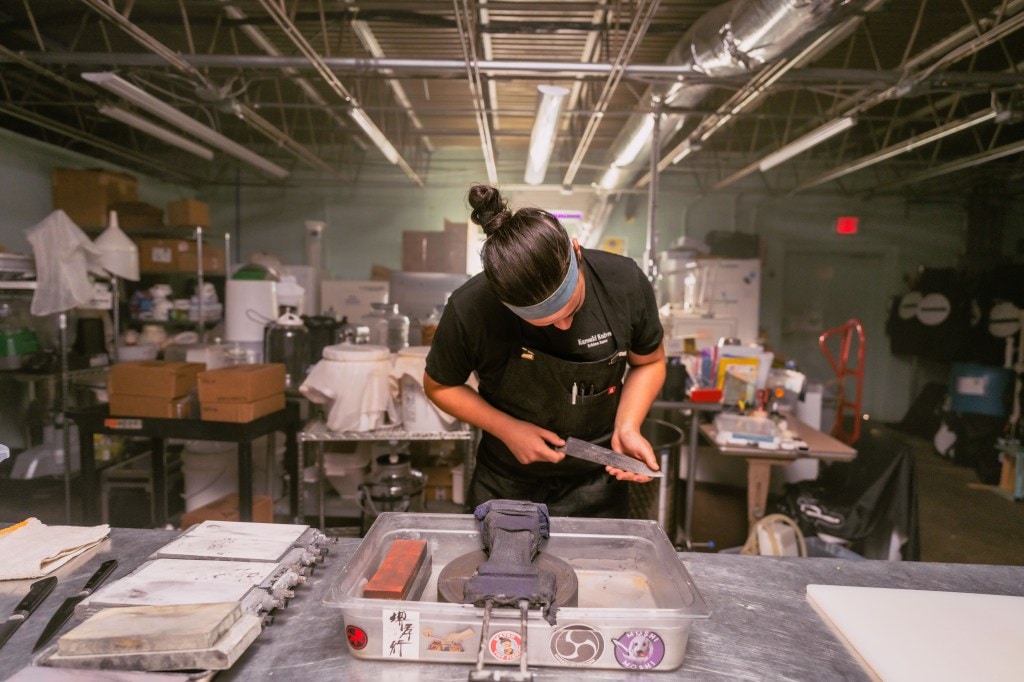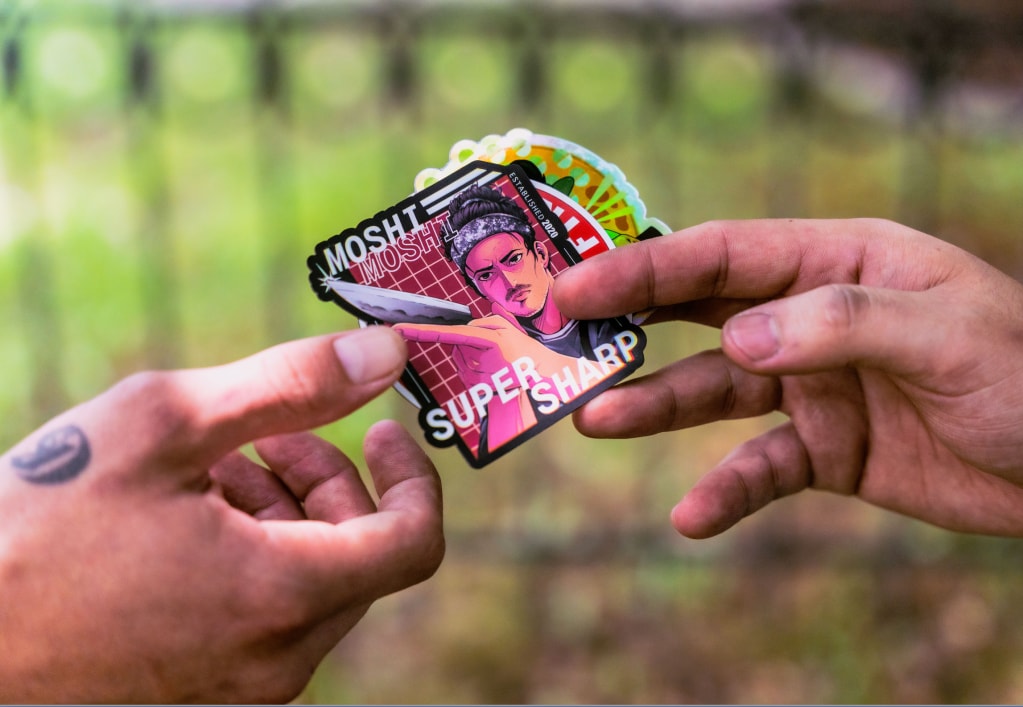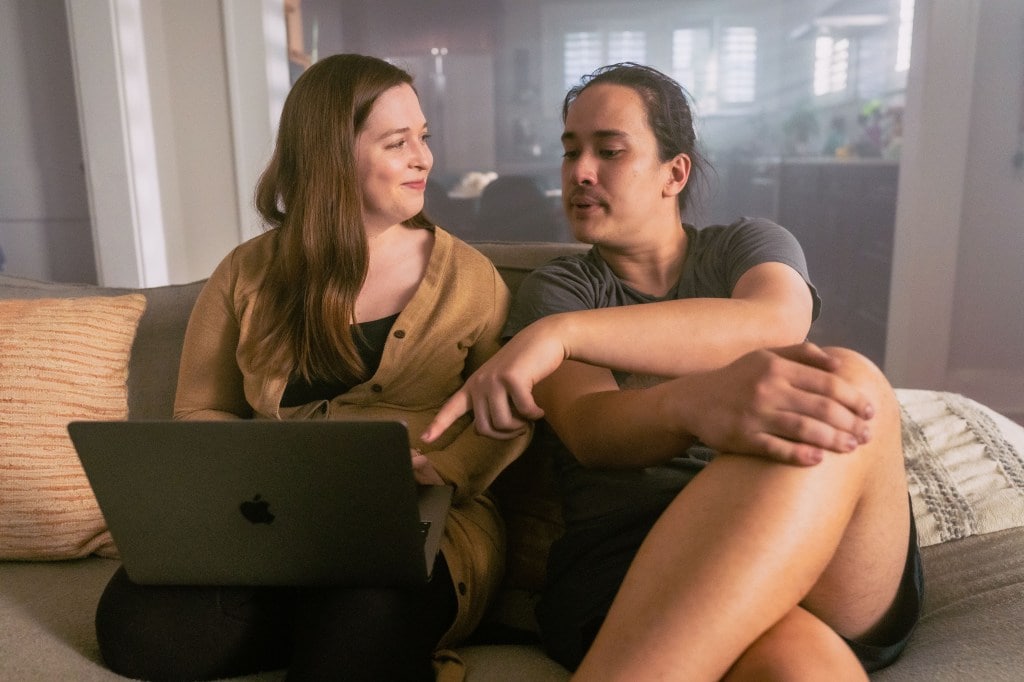Ask Michael Behn what he loves about knives and you’d better be ready for some serious geeking out on the subject.
You’ll hear about his passion for Kikuichi knives, which draw on Japanese bladesmithing skills dating back 750 years. Or he’ll convince you that switching from that dull tool in your kitchen drawer to a high quality knife feels like cutting vegetables with a laser.
When he started working as a restaurant cook, he spent his first $220 paycheck on a quality chef knife, even though it left him broke for a week.
“It’s always been about the knives,” says Michael, a Filipino American who grew up in the northern suburbs of Atlanta, Georgia.
For many years, his passion for knives lay dormant as he pursued a career in the restaurant business. But it was always there, just beneath the surface, waiting to slice through.

A missing ingredient
When asked about his career in the restaurant industry, Michael reflects that he only seemed to learn things the hard way. Still, from the age of 16 until his late 20s, he worked his way up through the ranks of the kitchen, starting as a dishwasher in a sushi restaurant.
He worked at various eateries in Atlanta and around the state, exposing him to different cuisines and some big-name chefs. At one point, he was a sous chef with 35 people working under him. He even dreamed of becoming a chef himself. But one crucial ingredient was missing from his restaurant life: happiness.
The hours were brutal, the pay was low, and he found the culture toxic. All too often, chefs screamed at rank-and-file workers. The razor-thin profit margins forced innovative culinary ideas and high-quality ingredients to be ditched for the generic and cheap.
“It was soul draining,” Michael recalls.
A pandemic reckoning
It all came crashing down in the COVID-19 pandemic, which pushed many restaurants to breaking point. With his co-workers talking about jumping ship, Michael discussed the issue with his chef, but things got heated and the chef threw his box of knives outside.
“I just grabbed my stuff and left,” Michael recalls.
Barely a week later, his love of knives resurfaced in the form of a business idea. While working at the sushi restaurant, he had learned how to sharpen knives the traditional Japanese way. Now he began offering knife-sharpening services to the Atlanta-area chef community he had grown to know so well.
There were other sharpeners in the area, but Michael brought something new to the table. Whereas some sharpeners used artificially powered belt grinders, Michael used a superior method of sharpening, rooted in history, to produce a truly sharp edge.
“I only used Japanese whetstones, which is the most artisanal way to sharpen a knife,” he says. “That was my niche.”
Further drawing inspiration from Japan, he added detailed touches such as wrapping the sharpened knives in Japanese newsprint with anime-branded stickers urging caution with the sharp blades.
He named the business Moshi Moshi, after the Japanese greeting meaning hello that is used when answering the phone.

Scaling up
The business grew. Initially, Michael drove for hours every day to pick up and deliver knives, but soon customers began dropping them off at his place. He asked a former employer and friend, Chef Kevin Gillespie to feature Moshi Moshi in an Instagram post and immediately got booked for two months straight.
Through trial and error and a lot of YouTube videos, he got better at his craft. He promoted the business through Instagram posts of him slicing through magazine paper with #supersharp blades. He became fluent in sharpening terminology like “burrs” and “grit grades.”
“A really well-sharpened knife is just geometry,” he explains. “It’s just two flat planes meeting at an acute apex. That’s it in its simplest form.”
He credits his wife, a CPA and director of tax at a large corporation, with helping the business succeed. Using Intuit QuickBooks, she helps him stay organized and handles the financials and taxes.
“She’s pretty much the brains behind it,” he says. “I’m definitely the hands.”

Finding happiness and giving back
Today, Michael teaches others how to sharpen knives and has started franchising Moshi Moshi. Just as vital, he’s found happiness in being kinder to himself and others.
Yes, he enjoys working shorter hours and having more financial control over his life than ever before. But a huge driver for him is providing other cooks a way out of unhappy jobs and paying them a living wage.
“It matters to pay a fair wage ’cause I never got one,” he says. “The business is not just about making money. We’re doing real stuff here—real stuff being the relationship with the franchisees and interactions with the customers.”
As a global financial technology platform, Intuit helps self-employed customers like Michael achieve their own dreams. Our innovative products and services improve our customers’ lives, opening expanded possibilities—whether you’re opening a coffee shop, paying down your college loan, or carving out a niche as the best knife-sharpener in town.